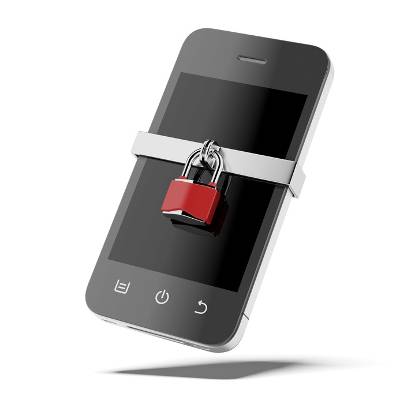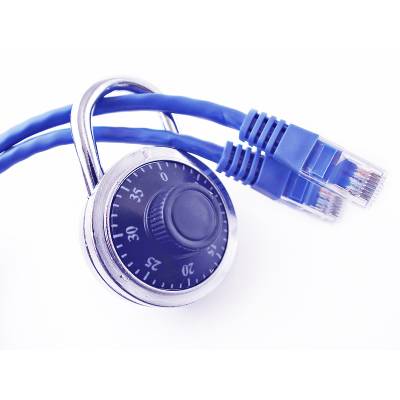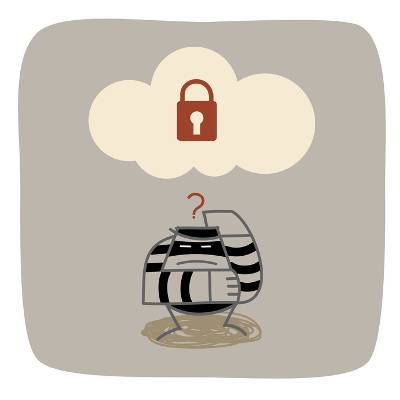Have any question?
Text or Call (954) 573-1300
Text or Call (954) 573-1300
 Changing your password is a pain. After you’ve gone several months with the same one, it can be difficult to remember your new password. Despite this, it’s always recommended that you change your passwords often. Unfortunately, when you change all of your passwords often, it’s even easier to forget them. Instead of using a post-it note on your monitor, you should instead try using a password manager.
Changing your password is a pain. After you’ve gone several months with the same one, it can be difficult to remember your new password. Despite this, it’s always recommended that you change your passwords often. Unfortunately, when you change all of your passwords often, it’s even easier to forget them. Instead of using a post-it note on your monitor, you should instead try using a password manager.
 How much thought have you put into selecting your debit card PIN? If you’ve not put any thought into your PIN, then it’s likely the case that you’ve picked a number that’s easy to remember or even one that’s associated with something personal. Fact: Taking time to pick random and hard-to-remember numbers greatly improves PIN security.
How much thought have you put into selecting your debit card PIN? If you’ve not put any thought into your PIN, then it’s likely the case that you’ve picked a number that’s easy to remember or even one that’s associated with something personal. Fact: Taking time to pick random and hard-to-remember numbers greatly improves PIN security.
 Humans are always trying to improve security protocols that can protect against increasingly advanced online threats. Unfortunately, the threats only grow stronger in response, and the war against malicious online activity rages on. Biometrics are security measures that are growing in popularity, but are expensive and difficult to integrate. Now, the US military is funding a campaign to make it more readily available to end users.
Humans are always trying to improve security protocols that can protect against increasingly advanced online threats. Unfortunately, the threats only grow stronger in response, and the war against malicious online activity rages on. Biometrics are security measures that are growing in popularity, but are expensive and difficult to integrate. Now, the US military is funding a campaign to make it more readily available to end users.
 When it comes time to upgrade, many smartphone users will sell off their old device in hopes of making extra cash. However, if the phone's memory is improperly wiped, an experienced hacker can use advanced tools to recover sensitive data off the used phone. Let's talk about how this happens and what can possibly be recovered by a hacker.
When it comes time to upgrade, many smartphone users will sell off their old device in hopes of making extra cash. However, if the phone's memory is improperly wiped, an experienced hacker can use advanced tools to recover sensitive data off the used phone. Let's talk about how this happens and what can possibly be recovered by a hacker.
 The Internet is a vast ocean filled with all sorts of different creatures. Many are harmless, like the bottlenose dolphin, but once in a while you will encounter an aggressive shark. But no matter how powerful or intelligent these creatures are, they still wind up flopping around on the deck of some fisherman's boat. Why? Because fishermen know what they're looking for and how to capture it. The same can be said about Internet phishers.
The Internet is a vast ocean filled with all sorts of different creatures. Many are harmless, like the bottlenose dolphin, but once in a while you will encounter an aggressive shark. But no matter how powerful or intelligent these creatures are, they still wind up flopping around on the deck of some fisherman's boat. Why? Because fishermen know what they're looking for and how to capture it. The same can be said about Internet phishers.
 In today's connected home, Internet security needs to extend beyond the PC. Any device that's connected to the Internet needs to be password protected, secured with a firewall, and utilize available security apps. These precautions should be taken even with seemingly harmless devices like baby monitors. A family from Ohio recently learned this lesson the hard way.
In today's connected home, Internet security needs to extend beyond the PC. Any device that's connected to the Internet needs to be password protected, secured with a firewall, and utilize available security apps. These precautions should be taken even with seemingly harmless devices like baby monitors. A family from Ohio recently learned this lesson the hard way.
 When you were a kid, did you ever ask your parents for a cool new toy only to have your request denied because you were in the habit of breaking everything? Your parents would point out your destructive habit and tell you, "This is why we can't have nice things." As an adult, the coolest toy is the Internet and hackers want to break it.
When you were a kid, did you ever ask your parents for a cool new toy only to have your request denied because you were in the habit of breaking everything? Your parents would point out your destructive habit and tell you, "This is why we can't have nice things." As an adult, the coolest toy is the Internet and hackers want to break it.
 On April 7th, a new bug on the Internet was discovered that's putting millions of users' personal data at risk. Given the name "Heartbleed bug," it's capable of allowing infiltrators to collect information while you are securely browsing a SSL/TLS website. Since SSL/TLS is so widely used, it's very probably that your personal data is at risk.
On April 7th, a new bug on the Internet was discovered that's putting millions of users' personal data at risk. Given the name "Heartbleed bug," it's capable of allowing infiltrators to collect information while you are securely browsing a SSL/TLS website. Since SSL/TLS is so widely used, it's very probably that your personal data is at risk.
 You're likely familiar with the various ways that hackers can steal your identity, but you may not be familiar with how hackers anonymously buy and sell people's personal information to interested parties. This is done through online ID theft services and a December hearing before the U.S. Senate highlights how one service was selling personal records on more than 200 million Americans!
You're likely familiar with the various ways that hackers can steal your identity, but you may not be familiar with how hackers anonymously buy and sell people's personal information to interested parties. This is done through online ID theft services and a December hearing before the U.S. Senate highlights how one service was selling personal records on more than 200 million Americans!
 The value of your email account cannot be understated. You may think less of your email inbox because there are so many other ways to digitally communicate, but to a hacker, your email is a goldmine of valuable information. You may use your email less than ever before, but that doesn't mean you can neglect email security.
The value of your email account cannot be understated. You may think less of your email inbox because there are so many other ways to digitally communicate, but to a hacker, your email is a goldmine of valuable information. You may use your email less than ever before, but that doesn't mean you can neglect email security.
 On December 3, 2013, security company Trustwave discovered over two million stolen user passwords for popular online services like Facebook, LinkedIn, Google, Twitter, Yahoo, and 93,000 other websites. There's a high probability that you use one of the services affected by the hack. Is your personal information compromised?
On December 3, 2013, security company Trustwave discovered over two million stolen user passwords for popular online services like Facebook, LinkedIn, Google, Twitter, Yahoo, and 93,000 other websites. There's a high probability that you use one of the services affected by the hack. Is your personal information compromised?
 Recently, Adobe sent out e-mails and letters to users notifying everyone of a security breach. "The attackers may have obtained access to your Adobe ID and encrypted password." The obvious question here is, "How do I protect myself and my business from such attacks?" The unfortunate answer is you can't, but you can marginalize the impact by taking some common sense measures.
Recently, Adobe sent out e-mails and letters to users notifying everyone of a security breach. "The attackers may have obtained access to your Adobe ID and encrypted password." The obvious question here is, "How do I protect myself and my business from such attacks?" The unfortunate answer is you can't, but you can marginalize the impact by taking some common sense measures.
 On September 10th, 2013, a new ransomware known as Trojan:Win32/Crilock.A began attacking computers all over the Internet, locking users out of their PCs and putting sensitive information at risk. If your computer gets it, then you're in for a world of hurt. Here are the details on what this virus does and what you can do to prevent it.
On September 10th, 2013, a new ransomware known as Trojan:Win32/Crilock.A began attacking computers all over the Internet, locking users out of their PCs and putting sensitive information at risk. If your computer gets it, then you're in for a world of hurt. Here are the details on what this virus does and what you can do to prevent it.
 If you use a smartphone to take personal pictures and post them to the Internet, then you may unknowingly be posting more about yourself than you want to, like where and when the picture was taken. This information in the hands of the wrong person can lead to dangerous consequences, like theft of your property, your identity, or even kidnapping.
If you use a smartphone to take personal pictures and post them to the Internet, then you may unknowingly be posting more about yourself than you want to, like where and when the picture was taken. This information in the hands of the wrong person can lead to dangerous consequences, like theft of your property, your identity, or even kidnapping.
 With an increase in Distributed Denial of Service (DDOS) attacks and packet flooding volume, its evident that hackers are using compromised web servers for their malicious activities. By infecting servers, these dastardly infiltrators create a Zombie command-and-control center to direct their malicious activities from.
With an increase in Distributed Denial of Service (DDOS) attacks and packet flooding volume, its evident that hackers are using compromised web servers for their malicious activities. By infecting servers, these dastardly infiltrators create a Zombie command-and-control center to direct their malicious activities from.
 If you have been following international news headlines with stories like WikiLeaks spreading confidential documents, and recent revelations about a US surveillance scandal, it kind of feels like we are in the middle of Spy vs. Spy. As nations look for stronger security solutions to protect themselves, Russia is looking to older technology to keep their communications safe.
If you have been following international news headlines with stories like WikiLeaks spreading confidential documents, and recent revelations about a US surveillance scandal, it kind of feels like we are in the middle of Spy vs. Spy. As nations look for stronger security solutions to protect themselves, Russia is looking to older technology to keep their communications safe.
Learn more about what L7 Solutions can do for your business.
L7 Solutions
7890 Peters Road Building G102,
Plantation, Florida 33324